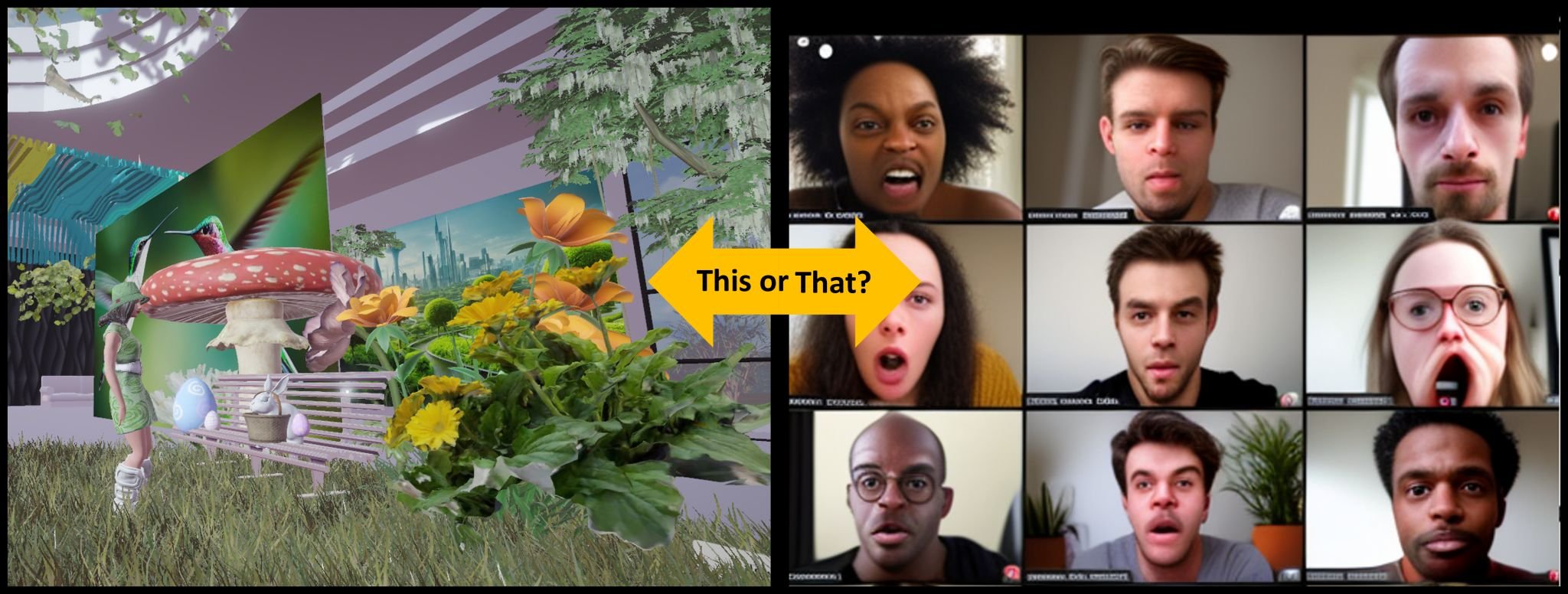Transforming Focus Groups with Immersive Research in the Metaverse
The advent of immersive research in the Metaverse offers a refreshing alternative to traditional focus groups, which often involve staring at a wall of faces on platforms like Zoom, leading to the all-too-common 'Zoom fatigue'. This new approach allows for a more engaging and dynamic interaction among participants.
Immersive focus groups versus Zoom groups
Unlike conventional focus groups, immersive research enables participants to inhabit creatively designed environments. Here, they can represent themselves as they wish, interacting with others in a setting that feels more natural and less draining than the typical grid of video feeds.
The Choice of Environment Matters
Consider the scenario of discussing Easter shopping plans. Would you prefer a stark, impersonal room or an immersive, themed environment? The latter offers a context-rich setting that can significantly enhance engagement and elicit more in-depth insights.
Breakthroughs in Immersive Research Lab
Our Immersive Research Lab has successfully hosted diverse projects, ranging from concept testing to collaborative problem-solving. This immersive approach has consistently demonstrated its effectiveness in engaging participants more actively, fostering open communication, and enabling richer, more insightful discussions.
Beyond Research: Creating a Community in the Metaverse
Immersive research in the Metaverse goes beyond data collection; it creates a space where participants are keen to engage and contribute. In one memorable instance, a group enjoyed the experience so much they asked to extend their session, leading to a spontaneous and joyful dance party. This level of participant enjoyment is rarely seen in traditional research settings.
Avoiding the Pitfalls of Conventional Online Meetings
A significant advantage of immersive qualitative research is its ability to sidestep the 'Zoom fatigue' associated with standard online meetings. By offering a more interactive and visually stimulating environment, participants can engage without the tedium of staring at a static screen of faces.
Transforming the Essence of Group Research
The Metaverse, or our immersive research environments, offer a transformative experience for focus groups. The ease of engagement and the depth of interaction within these spaces highlight a significant shift in how qualitative research can be conducted, moving away from rigid structures to more fluid and dynamic interactions.

